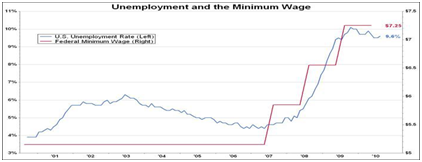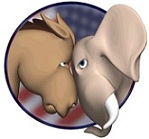A fines del siglo pasado compré bonos de la República Argentina a un precio de descuento (por debajo de su valor nominal), de modo que me reportaban un ingreso anual de aproximadamente el 12% por el pago de sus intereses. Sabía que era una inversión de alto riesgo; por eso decidí comprarlos a bajo precio y obtener una tasa de interés más alta que la nominal. En otras palabras, pese al alto interés prometido podía acabar perdiendo toda la inversión o, al menos, arriesgaba perder una cantidad mayor que las ganancias que me reportaban esos intereses.
Por lo tanto, al cabo de un año, tomé la prudente decisión de vender esos bonos a un descuento mayor del que había pagado. Perdí cerca del 8% de lo que había pagado, pero había recibido durante el año alrededor del 12% por los intereses. Ese pago de intereses de los bonos del Estado es lo que se reconoce como el "servicio de la deuda", es decir, el compromiso de compensación que asume el Estado con sus acreedores. Personalmente, hice un buen negocio, con una ganancia de alrededor del 4%. Pero los que compraban esos bonos cuando yo vendí, estaban poniendo en mayor riesgo su capital a cambio de recibir por su inversión un interés de alrededor del 15% anual, aumentado gracias al precio de mayor descuento que estaban pagando por el riesgo.
Tanto quienes compraron los bonos de la República Argentina originalmente por su valor nominal, como los que fuimos comprándolos en los años subsiguientes a precios cada vez más bajos de descuento éramos, por lo tanto, acreedores del Estado argentino.
- Hits: 15416

.jpg)

 El espectáculo populista que estamos presenciando entre Republicanos y Demócratas en Estados Unidos es una pugna irracional que divide y polariza al país, que ahora parece guiado por caudillos prepotentes que desafían a sus adversarios políticos como si fueran enemigos irreconciliables. Presenciamos con asombro una interminable campaña política en la que no se observa esfuerzo alguno de colaboración sino el turbio propósito de demonizar al contrario y calificarlo de culpable de todos los males que sufre el país .
El espectáculo populista que estamos presenciando entre Republicanos y Demócratas en Estados Unidos es una pugna irracional que divide y polariza al país, que ahora parece guiado por caudillos prepotentes que desafían a sus adversarios políticos como si fueran enemigos irreconciliables. Presenciamos con asombro una interminable campaña política en la que no se observa esfuerzo alguno de colaboración sino el turbio propósito de demonizar al contrario y calificarlo de culpable de todos los males que sufre el país .